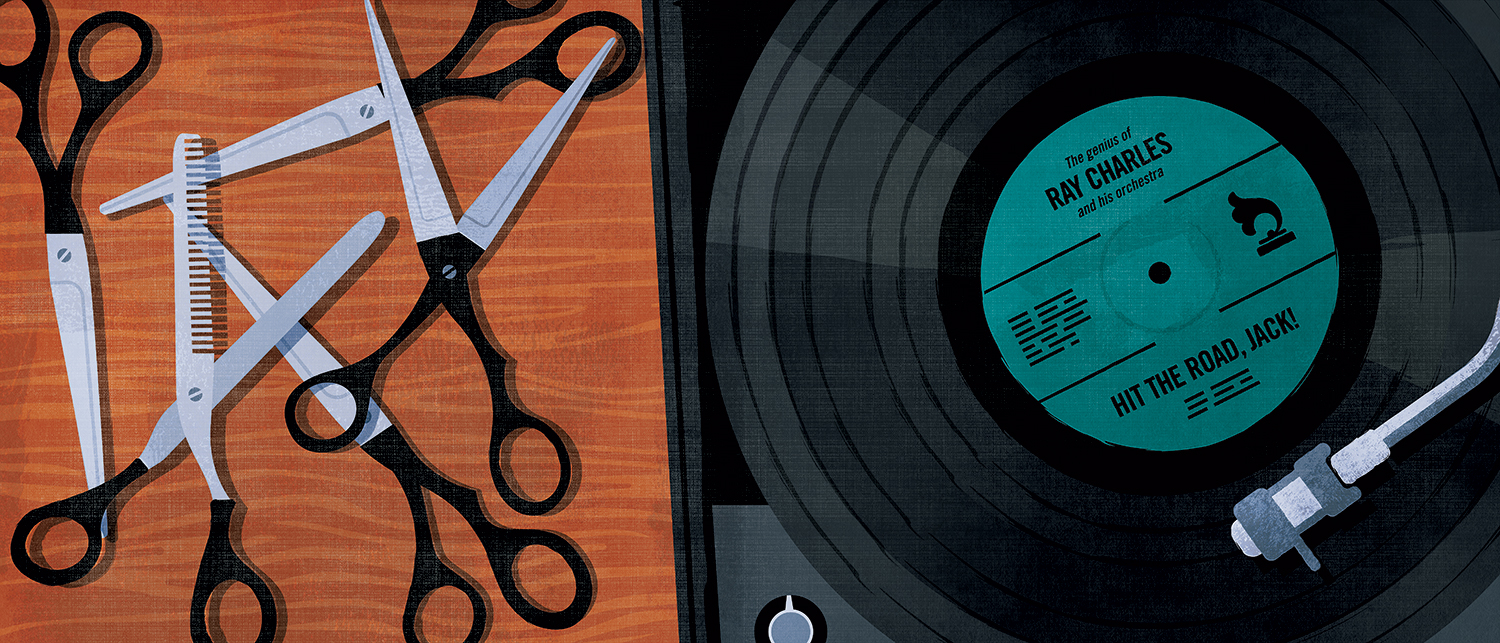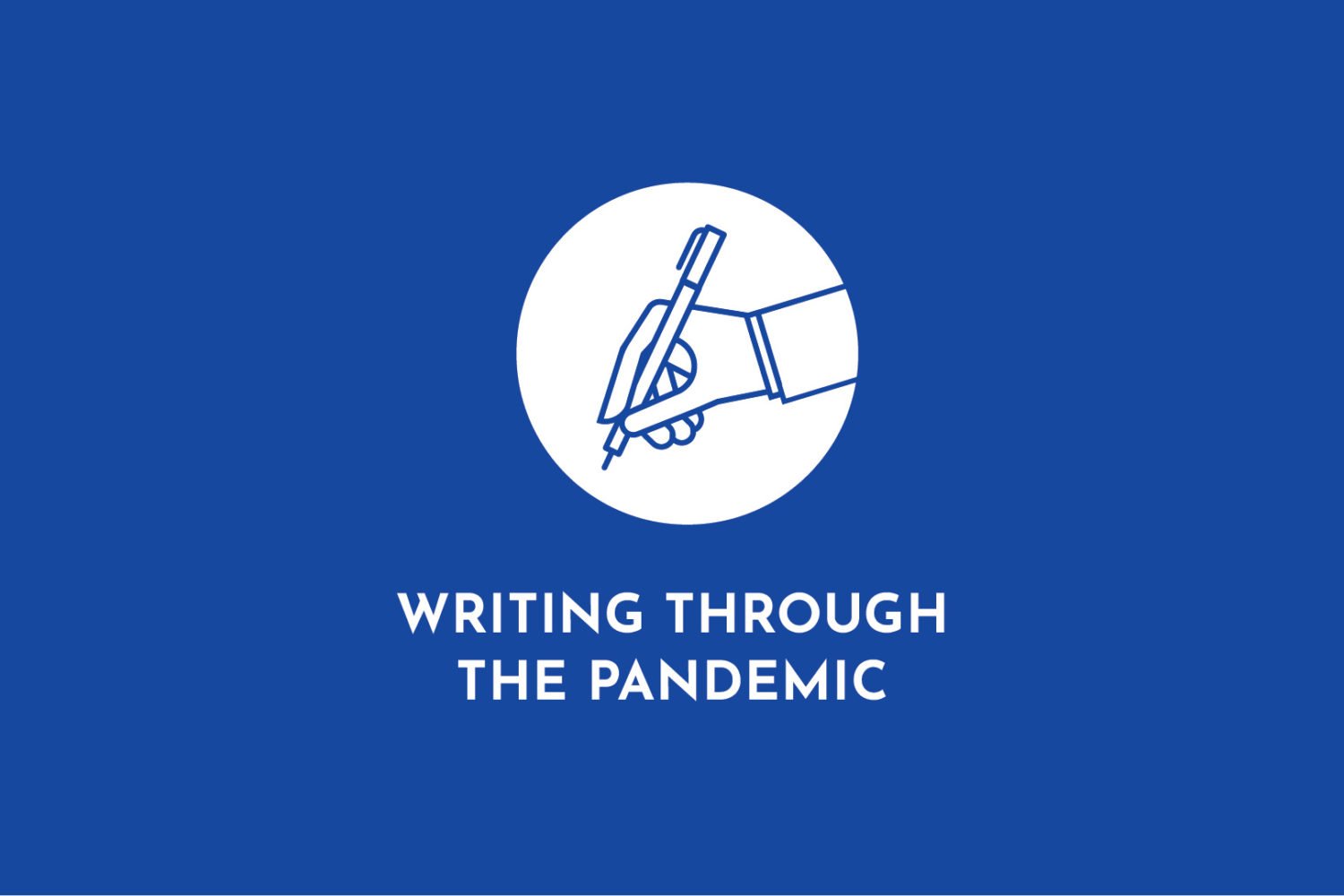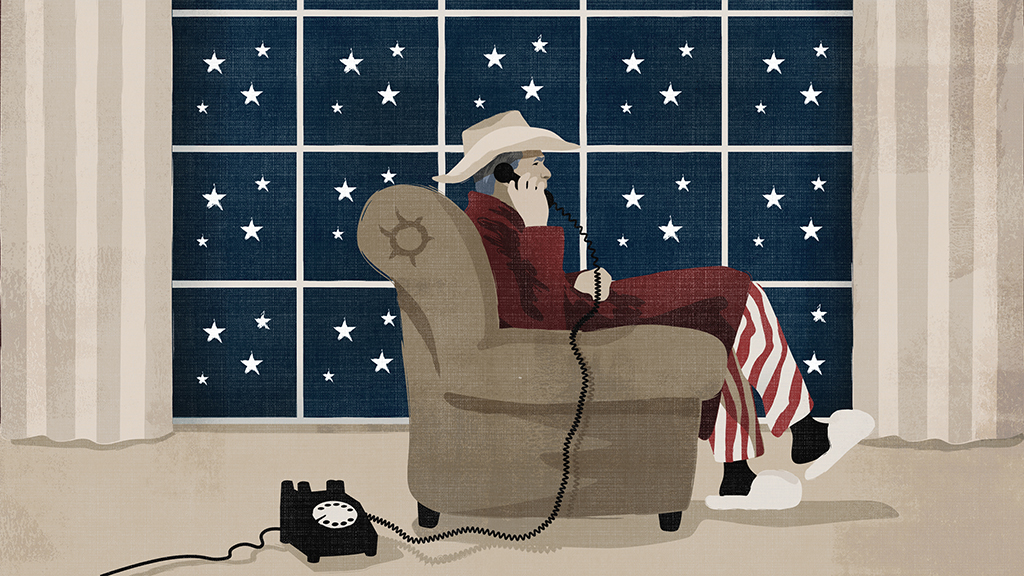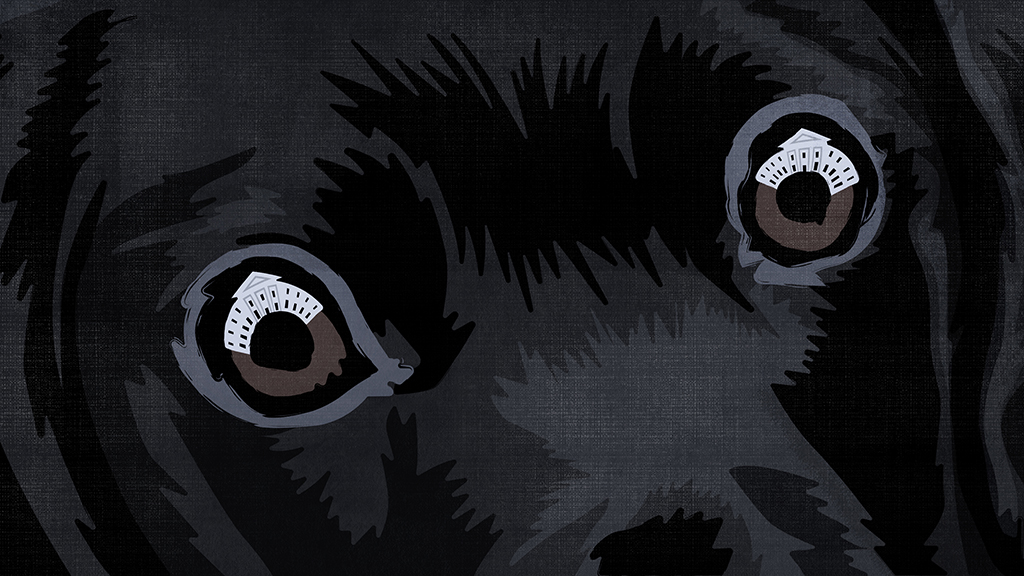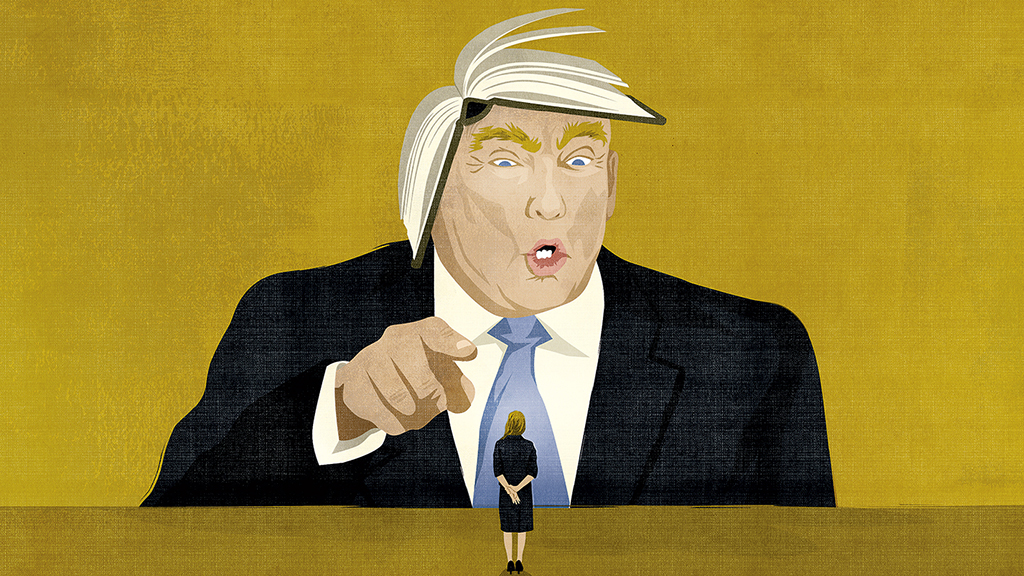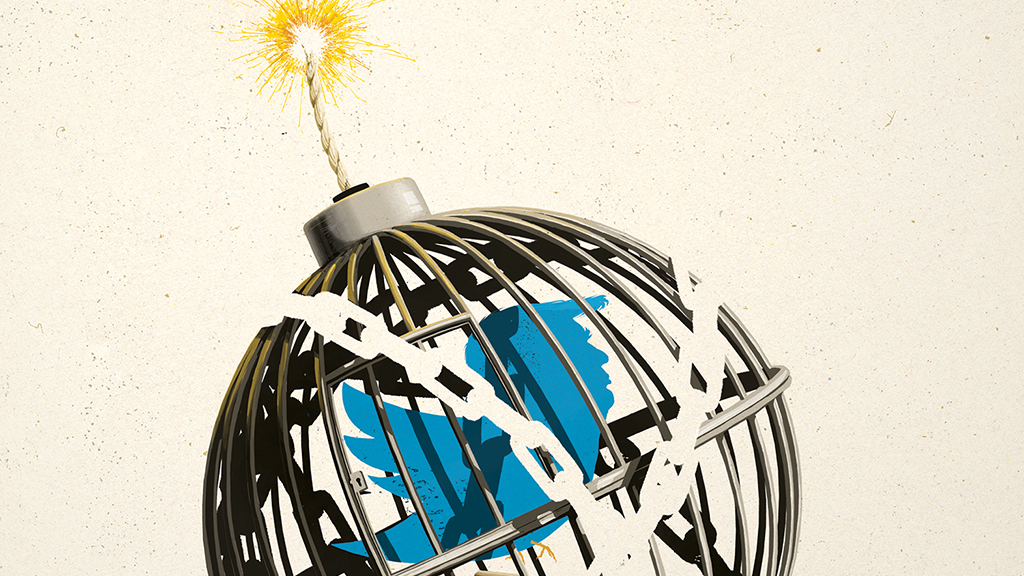This piece is part of the Trump Fiction Project from our December 2017 issue. To explore more of “Our Year of Trump,” a look at how our city has dealt with 12 exhausting months, click here.
Raising both hands above his head, the President flashes double V signs before ducking into Marine One for the last time. The doors close, the rotors spin up, and the helicopter lifts from the White House lawn. At the bottom of the screen, the crawl reads: PRESIDENT, VICE PRESIDENT RESIGN OVER RUSSIAN COLLUSION, SPEAKER PELOSI TAKES OATH OF OFFICE . . . PRESIDENT’S LAST TWEET . . . “WHAT A CROWD! WHAT A TURNOUT! BIGGEST IN HISTORY OF PRESIDENTIAL RESIGNATIONS!”
“Damn,” Jenkins says, switching off the television in the old walnut-veneer credenza-style entertainment center. No one in the barbershop wants to listen to the commentators reminiscing that the ex-President wasn’t so bad after all. “Man even know they was ’bout to run his ass out?”
“Psalm 109, verse 8,” Speed says.
A.B. looks at him quizzically. Under the influence of a religion-minded lady friend, Speed was for a time a churchgoing man. Those days are behind him, but he discovered a remarkable memory for Scripture.
“ ‘Let his days be few,’ ” Doc says from behind the Post’s A section, “ ‘and another take his place in office.’ ”
“Too many days, you ask me,” A.B. says. “Clown never shoulda got in in the first place.”
Jenkins opens the credenza lid and picks up the tone arm, sets it on a record. The opening strains of Ray Charles’s “Hit the Road Jack” fills the shop. Sitting in his chair, Jenkins looks slyly to where Hubble is playing two-handed tonk with A.B., their chairs pulled away from the wall to face each other.
“Say, Omar,” he says. “You vote for him, or do I got the wrong man?”
“Y’all know it was me,” Hubble says wearily.
Jenkins waits, swiveling to the window. Once there was a drugstore across the street, one with a lunch counter and sidewalk gum machines, and a five-and-dime on one corner and on the other a DGS that gave credit till payday. Now there’s a sit-down restaurant with valet parking, a hot-yoga studio, and a coffee bar. A bakery and the unisex hair salon that took the last of Jenkins’s trade occupy the shell of the movie theater on the Avenue.
“Explain to me again,” he says, turning back to the shop that’s empty of customers. “You ain’t no fool. Why you vote for one?”
The men laugh, and Hubble frowns as he adds a card to his spread. On the wall behind him, between yellowing posters for long-gone shows at the Howard, is a laminated illustration, a mock sign reading trump-free zone. It’s from an article in the Post. Doc, ever the grammarian, added the hyphen.
Hubble’s announcement of his intention provoked heated discussion and threats from Jenkins to bar him. Jenkins soon relented. For years, when the shop was loud with laughter and lies, Hubble was second barber with his own key. Now only these five remain, all others departed like the world they made. Survivors in alien territory, they gather each morning, a ceremony of dark old men in death’s waiting room.
“Shoot,” Speed says. “We all got took in. Remember when he had that news conference on the Avenue?” It was just that spring, when the President still believed he could stave off impeachment by appealing to communities he’d spurned.
“Promised he was gon’ do a whole lotta stuff,” Jenkins says. “Make them condos a school again, bring back the drugstore, put everything like it used to be.”
“Yeah,” A.B. breathes. “An’ U Street was gon’ be U Street—three, four shows a night at the Howard, jazz at the Bohemian Caverns, dancin’ at the Lincoln Colonnade.”
The President even promised to take down the fence around the reservoir, make the streets so safe families could sleep on the grounds hot summer nights.
“You forgetting something?” Doc asks, lowering the paper and looking around severely.
Because there was a price for this return to paradise, and the President tried to slip it past them, bury it in his tortured syntax that afternoon on the Avenue. It’d be a white folks’ paradise, with paid admission at the gate. And there really would be a gate—with graven images of Willie Best and Louise Beavers on either side. There’d be a wall, too—a wall to keep them inside where it was all blackface and banjos and happy feet, a minstrel-show theme park based on the proposition that if you could be black on Saturday night, you’d never want to be white again.
“Shows round the clock,” the President had crowed. “American jobs for American people! Bigger than Disneyland! And a two-hour cable special opening night!”
It was the apotheosis of the long-whispered-about secret protocol to Make Washington White Again: the Plan according to Trump.
“NegroLand?” Speed asks. “He was gon’ call it that for real?”
“Trademarked it,” says Doc. “It was in the paper.”
A.B. says, “I thought it was Nigger Town,” and Doc says, “Didn’t test well in focus groups.”
“Not even all them white kids listen’ to rap?”
“They were the ones that didn’t like it.”
“Huh,” Jenkins says, and no one says anything as Ray Charles band’s sizzling horns blare the end of “One Mint Julep” and the needle hisses in the trailing groove. It lifts from the record. Hubble and A.B. slap cards on the chair between them. The toilet flushes, and Speed comes out of the bathroom. After a while, Jenkins says ruminatively, “Don’t care what you say, Doc—I’m gon’ miss Orange Julius.”
“Miss him?” Doc sputters. The rest look at Jenkins, too stunned to speak. “That man messed things up for everybody, even the white folks too ignorant to realize it.”
“I know, I know,” Jenkins says stubbornly. He shoots Hubble a glance, asking for help, but Hubble only shakes his head. He’s on his own.
Feeling his way slowly, Jenkins says, “It was like watchin’ monkeys at the circus. Never knew what he was gon’ say or do. Last two years like ridin’ a roller coaster lookin’ through the cracks of your fingers. Glad I’m back on the ground, and I sure don’t wanna git on again. But man, it was a helluva ride.”
This article appears in the December 2017 issue of Washingtonian.

